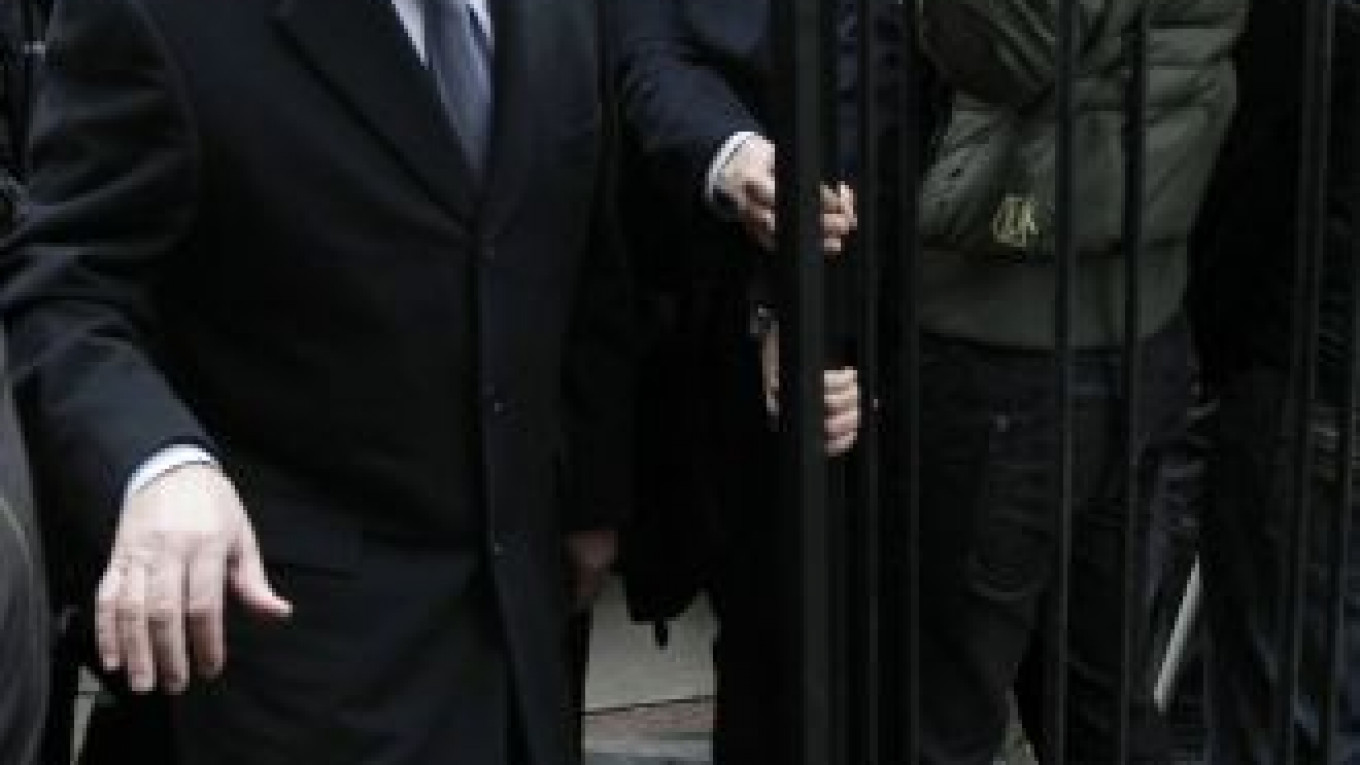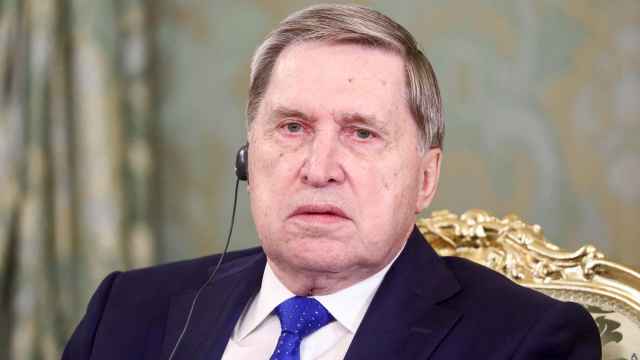KIEV – Former Ukrainian President Leonid Kuchma on Wednesday denied involvement in the 2000 murder of opposition journalist Heorhiy Gongadze and said he was ready to go through "all the torments of hell" to prove his innocence.
Kuchma, a two-term president, appeared for questioning at the Prosecutor General's Office in Kiev after a criminal case was opened against him on Tuesday on suspicion of having a part in Gongadze's killing.
But he was suddenly driven away in the early afternoon, apparently alarmed by the presence of his former bodyguard, who was behind the publication of audiotapes that appeared to link him to the killing.
The opening of the case against Kuchma, once a patron of President Viktor Yanukovych, surprised many observers.
Critics and political opposition of Yanukovych have consistently accused him of covering up misdeeds of his political and business allies since coming to power in February 2010, while at the same time persecuting opposition rivals.
Speaking to journalists before he appeared for questioning, Kuchma said he wanted to "wash away the shameful stain" of the accusation against him.
"You know I lived 10 years under psychological pressure. So today I am morally ready to go through all the torments of hell to show that I am innocent," said Kuchma, 72.
The grisly murder of the 31-year-old editor, a fierce public critic of Kuchma and a well-known face on TV talk shows, became Ukraine's most notorious crime case.
It led to violent street clashes in Kiev between protesters and riot police and marked a turning point in Kuchma's 10-year rule.
Former Prime Minister Yulia Tymoshenko, Yanukovych's fiercest rival, has said she sees the whole affair as "bluff and window-dressing" aimed at projecting the impression that the Yanukovych leadership was abiding by the rule of law.
She said Kuchma's prosecution would come to nothing.
One analyst suggested the proceedings might clear Kuchma's name. "In the end it may turn out that things will suit Kuchma fine. He risks very little — there is no real direct proof against him," said Volodymyr Fesenko of the Penta think tank.
The simultaneous appearance of Mykola Melnychenko, Kuchma's former bodyguard who became one of his main accusers in the affair, appeared to frighten Kuchma. Melnychenko was involved in the publication of audiotapes, secretly recorded between 1998 and 2000, that appeared to incriminate Kuchma.
A voice resembling that of Kuchma can be heard on the tapes telling officials to "deal with" Gongadze. The authenticity of the tapes has never been confirmed.
Melnychenko, before going in to meet investigators, told journalists he wanted "a face-to-face" with Kuchma to eliminate "contradictions in our evidence."
But some hours later he re-appeared and told journalists that Kuchma had fled on spotting him.
"Leonid Danilovich became nervous when he saw me and stood up," Melnychenko told reporters. "He shouted, 'Unless you detain me, I will not take part in the investigation,' and he ran out very quickly like a shameful wolf, showing his heels."
A Message from The Moscow Times:
Dear readers,
We are facing unprecedented challenges. Russia's Prosecutor General's Office has designated The Moscow Times as an "undesirable" organization, criminalizing our work and putting our staff at risk of prosecution. This follows our earlier unjust labeling as a "foreign agent."
These actions are direct attempts to silence independent journalism in Russia. The authorities claim our work "discredits the decisions of the Russian leadership." We see things differently: we strive to provide accurate, unbiased reporting on Russia.
We, the journalists of The Moscow Times, refuse to be silenced. But to continue our work, we need your help.
Your support, no matter how small, makes a world of difference. If you can, please support us monthly starting from just $2. It's quick to set up, and every contribution makes a significant impact.
By supporting The Moscow Times, you're defending open, independent journalism in the face of repression. Thank you for standing with us.
Remind me later.






